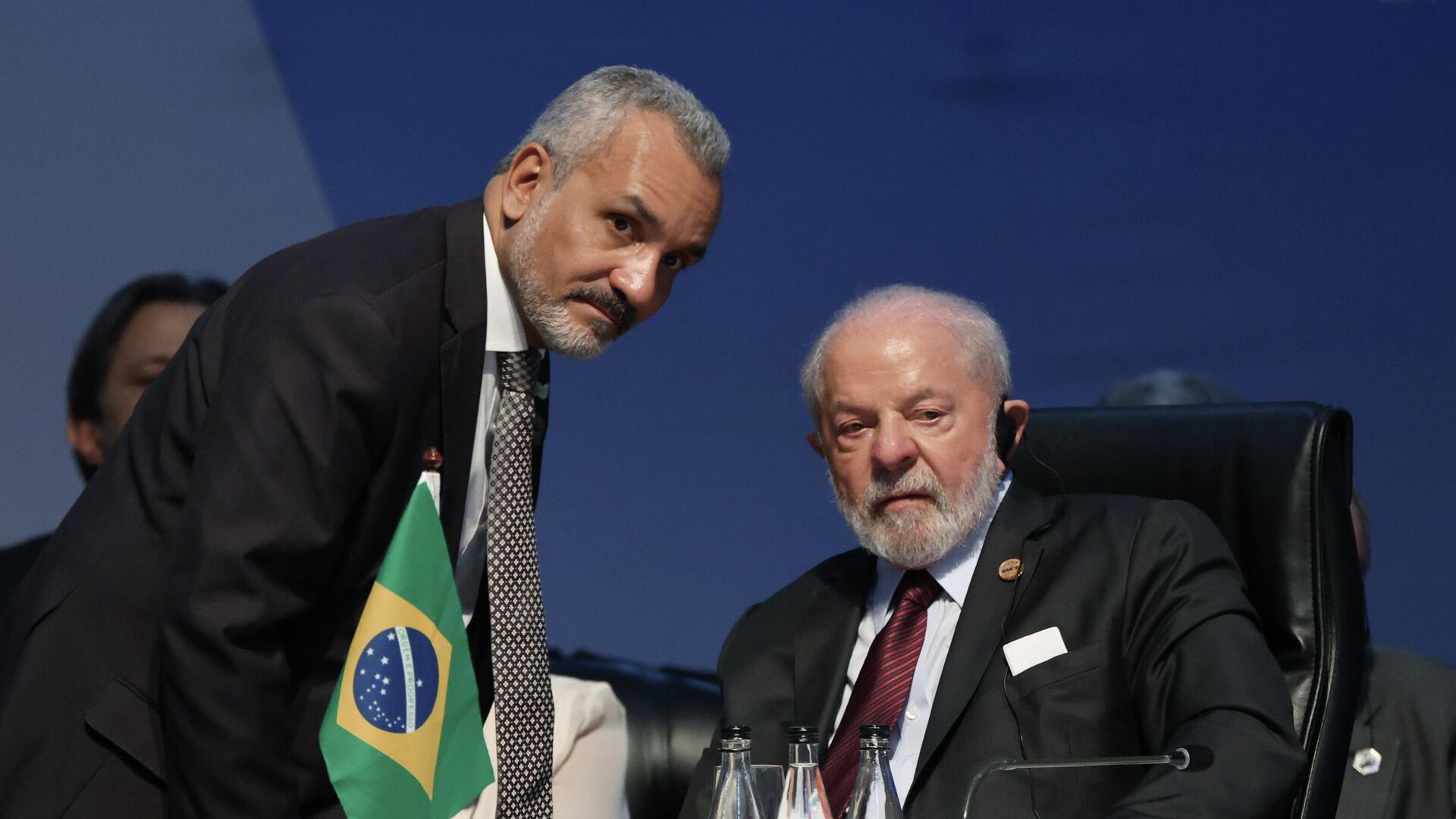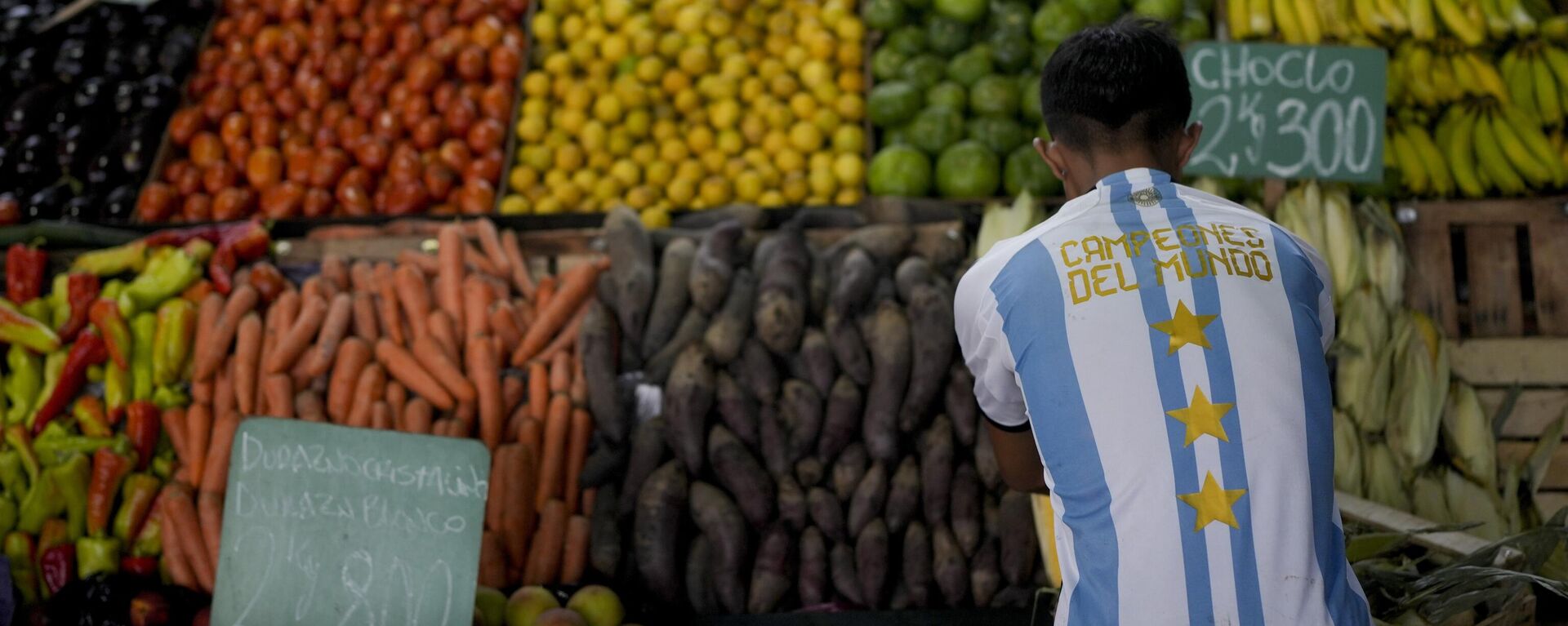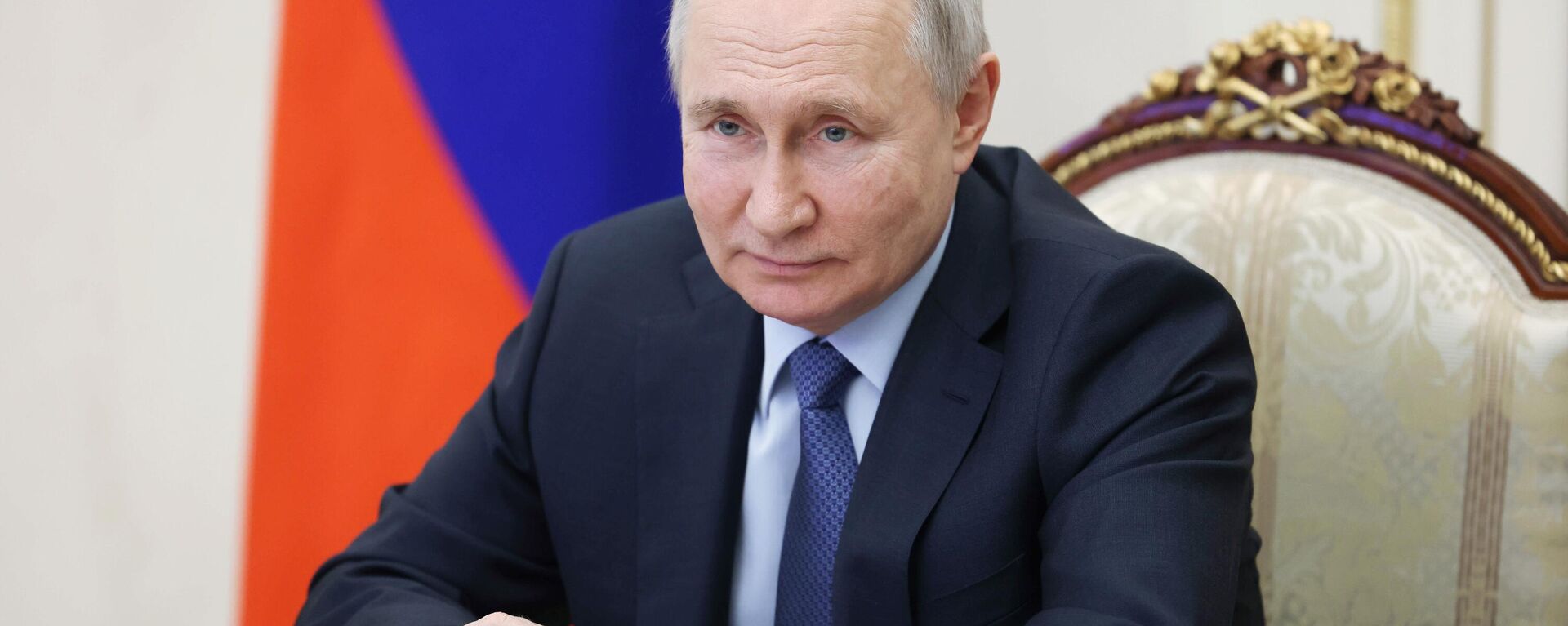https://en.sputniknews.africa/20230825/brics-expansion-what-could-it-mean-to-latin-america-1061625856.html
BRICS Expansion: What Could It Mean to Latin America?
BRICS Expansion: What Could It Mean to Latin America?
Sputnik Africa
The historical BRICS 2023 summit concluded on August 24 in Johannesburg, South Africa. The event was crowned by the accession of six new members to the group... 25.08.2023, Sputnik Africa
2023-08-25T19:02+0200
2023-08-25T19:02+0200
2023-12-08T17:22+0100
bolivia
venezuela
brics
world bank
international monetary fund (imf)
argentina
international
opinion
brazil
china
https://cdn1.img.sputniknews.africa/img/07e7/08/19/1061625318_0:0:3127:1759_1920x0_80_0_0_4262f3a65a3e0f7df45e8972a56004fd.jpg
BRICS group — currently consisting of Brazil, Russia, India, China and South Africa, had officially approved the accession of Argentina, Iran, Saudi Arabia, Ethiopia, Egypt and the United Arab Emirates. Argentina, which had formally applied to join the bloc in September 2022, will become a full member from January 2024.The analyst highlighted that Argentina will enter as a "full member" of the group, a category that would position the country equal to the other founding members of the bloc. But Argentina is not the only South American country interested to join the BRICS. Venezuela, Bolivia and Cuba have also expressed interest in being accepted as members. In this regard, the President of Bolivia, Luis Arce; the Cuban president, Miguel Doaz Canel and the Venezuelan foreign minister, Yvan Gil, participated as guests in the summit.In a dialogue with Sputnik, the international analyst Anibal Garcia considered that certain characteristics must be presented for the countries to be included, among which are maintaining a relevant commercial exchange between the members and having a shared vision regarding the bloc's problems.Guerrero stressed that the BRICS have stood out for their ability to foster trade and investment ties, so it is logical that the new members expect to strengthen their levels of economic ties.In turn, Latin American countries would welcome access to financing for infrastructure projects "where Latin America is always looking to improve and acquire new lines of financing." Another reason why the expansion of the BRICS in the region is pursued is to "increase the capacity for collective bargaining in all forums such as the G20, the IMF, the World Bank", organizations in which greater participation is required for years.A scheme alternative to the IMF?The BRICS group is different compared to the traditional multilateral organizations that have historically concentrated decision-making. For Garcia, the BRICS block is positioned as an "alternative" space that represents multipolarity, although not confrontation.The analyst recalled that several experts, projections from the IMF and the World Bank have shown that China and the Asia-Pacific zone will be "the areas with the highest growth and most dynamism in this decade", something that will impact the BRICS. This situation would allow for greater financing through the NDB for infrastructure development and social programs.Garcia pointed out that, in turn, the BRICS could represent for the Latin American countries an "updating" or "reform" of some bilateral schemes such as the International Fund or the World Bank. In this sense, the inclusion of Argentina and Egypt, the two main debtors of the IMF, give "a clear message to the IMF to update its way of making loans," García said.For his part, Guerrero warned that "until now neither the BRICS nor any of its instruments have been thought of as alternative instruments to financing strategies such as that of the IMF." For the expert, the NDB does not have a financial objective like the IMF, but is more similar in its conception to the Latin American Development Bank.Even so, the BRICS could strengthen their negotiating capacities and exert more pressure to review a series of IMF instruments "that are strongly disadvantageous for emerging countries."
https://en.sputniknews.africa/20230825/accession-of-argentina-to-brics-presents-great-export-opportunities-foreign-minister-1061615462.html
https://en.sputniknews.africa/20230524/putin-russia-to-bolster-ties-with-africa-asia-latin-america-in-every-possible-way-1059439835.html
bolivia
venezuela
argentina
brazil
china
russia
india
south africa
johannesburg
iran
saudi arabia
united arab emirates (uae)
ethiopia
egypt
latin america
west
Sputnik Africa
feedback@sputniknews.com
+74956456601
MIA „Rossiya Segodnya“
2023
Samantha Arias
https://cdn1.img.sputniknews.africa/img/07e7/0a/18/1063050346_115:0:834:719_100x100_80_0_0_1682778780537fd5aa8dd2536a012c1b.jpg
Samantha Arias
https://cdn1.img.sputniknews.africa/img/07e7/0a/18/1063050346_115:0:834:719_100x100_80_0_0_1682778780537fd5aa8dd2536a012c1b.jpg
News
en_EN
Sputnik Africa
feedback@sputniknews.com
+74956456601
MIA „Rossiya Segodnya“
Sputnik Africa
feedback@sputniknews.com
+74956456601
MIA „Rossiya Segodnya“
Samantha Arias
https://cdn1.img.sputniknews.africa/img/07e7/0a/18/1063050346_115:0:834:719_100x100_80_0_0_1682778780537fd5aa8dd2536a012c1b.jpg
bolivia, venezuela, brics, world bank, international monetary fund (imf), argentina, international, brazil, china, russia, india, south africa, johannesburg, iran, saudi arabia, united arab emirates (uae), ethiopia, egypt, latin america, west
bolivia, venezuela, brics, world bank, international monetary fund (imf), argentina, international, brazil, china, russia, india, south africa, johannesburg, iran, saudi arabia, united arab emirates (uae), ethiopia, egypt, latin america, west
BRICS Expansion: What Could It Mean to Latin America?
19:02 25.08.2023 (Updated: 17:22 08.12.2023) Samantha Arias
Producer / Podcast host
The historical BRICS 2023 summit concluded on August 24 in Johannesburg, South Africa. The event was crowned by the accession of six new members to the group, including Argentina. In a dialogue with Sputnik, analysts reviewed the benefits that the group will bring to the region.
BRICS group — currently consisting of Brazil, Russia, India, China and South Africa, had officially approved the accession of Argentina, Iran, Saudi Arabia, Ethiopia, Egypt and the United Arab Emirates.
Argentina, which had formally applied to join the bloc in September 2022, will become a full member from January 2024.
"It would be the second country in South America after Brazil, to join the BRICS universe in general, since Uruguay is part of the group's New Development Bank, although the purchase of shares has not yet been completed," Argentinian political scientist Mario Guerrero told Sputnik.
The analyst highlighted that Argentina will enter as a "full member" of the group, a category that would position the country equal to the other founding members of the bloc.
But Argentina is not the only South American country interested to join the BRICS.
Venezuela,
Bolivia and
Cuba have also expressed interest in being accepted as members. In this regard, the President of Bolivia, Luis Arce; the Cuban president, Miguel Doaz Canel and the Venezuelan foreign minister, Yvan Gil, participated as guests in the summit.
In a dialogue with Sputnik, the international analyst Anibal Garcia considered that certain characteristics must be presented for the countries to be included, among which are maintaining a relevant commercial exchange between the members and having a shared vision regarding the bloc's problems.
"Both Venezuela and Bolivia are two countries that have relevant trade relations with the BRICS members, especially with Russia and China. In addition to the request, what they have to do is to be there a little longer, doing the effort to be in that BRICS+ scheme", pointed out García.
Guerrero stressed that the BRICS have stood out for their ability to foster trade and investment ties, so it is logical that the new members expect to strengthen their levels of economic ties.
In turn, Latin American countries would welcome access to financing for infrastructure projects
"where Latin America is always looking to improve and acquire new lines of financing." Another reason why the expansion of the BRICS in the region is pursued is to
"increase the capacity for collective bargaining in all forums such as the G20, the IMF, the World Bank", organizations in which greater participation is required for years.
A scheme alternative to the IMF?
The BRICS group is different compared to the traditional multilateral organizations that have historically concentrated decision-making. For Garcia, the BRICS block is positioned as an "alternative" space that represents multipolarity, although not confrontation.
"The BRICS are a block that has been very dynamic as a whole, that has grown much more than even the G7," Garcia said, explaining that this is one of the reasons why South American countries find it attractive to join the group.
The analyst recalled that several experts, projections from the IMF and the World Bank have shown that China and the Asia-Pacific zone will be "the areas with the highest growth and most dynamism in this decade", something that will impact the BRICS. This situation would allow for greater financing through the NDB for infrastructure development and social programs.
Garcia pointed out that, in turn, the BRICS could represent for the Latin American countries an "updating" or "reform" of some bilateral schemes such as the International Fund or the World Bank. In this sense, the inclusion of Argentina and Egypt, the two main debtors of the IMF, give "a clear message to the IMF to update its way of making loans," García said.
"It is giving these countries an opportunity to get out of this scheme of economic indebtedness, which leads the countries to make structural adjustments that end up being contrary to the development of the populations of those countries," he said.
For his part, Guerrero warned that "until now neither the BRICS nor any of its instruments have been thought of as alternative instruments to financing strategies such as that of the IMF." For the expert, the NDB does not have a financial objective like the IMF, but is more similar in its conception to the Latin American Development Bank.
Even so, the BRICS could strengthen their negotiating capacities and exert more pressure to review a series of IMF instruments "that are strongly disadvantageous for emerging countries."




